Canada's NDP comes under fire as it gains new support
- Published
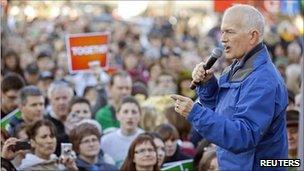
Recent polls suggest NDP leader Jack Layton is gathering increasing support from voters
Canada's New Democratic Party (NDP) has come under increasing fire from its rivals as polls suggest the party is closing the gap with Conservatives in the run-up to the 2 May election.
Recent polls have put the NDP five percentage points behind Conservatives.
Conservative Prime Minister Stephen Harper said the NDP would need the Bloc Quebecois' support to win the election.
Meanwhile, NDP leader Jack Layton said he would not interfere with the Bank of Canada's independence if elected.
Mr Layton's comment about Canada's central bank came a day after he said he would like the bank to keep its interest rates low, prompting a flurry of criticism from his opponents.
A federal general election was called after Prime Minister Stephen Harper's Conservative minority government lost a confidence vote.
The vote was sparked after his government was found to be in contempt of parliament because of its failure to disclose the full costs of anti-crime programmes, corporate tax cuts and plans to purchase stealth fighter jets from the US.
NDP gains
Although Mr Harper's Conservatives were seen as the front-runners going into the election, the left-leaning New Democratic Party has been making unexpected gains in recent polls.
A survey, external of 1,200 Canadians conducted by polling firm Nanos Research placed the NDP at 31%, while putting Mr Harper's Conservatives at 36%.
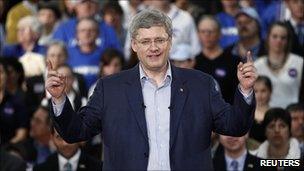
Mr Harper said higher taxes could result from an NDP win on 2 May
Michael Ignatieff's Liberal Party trailed at 22%, and the Bloc Quebecois garnered a mere 6%, the Nanos poll suggested.
However, analysts say the New Democratic Party and the Liberals are vying for the same segment of the electorate, which could split voters and ultimately contribute to a Conservative win.
Another survey by polling firm Ekos indicated 35% support for the Conservatives, with the NDP, which ran a distant third at the beginning of the campaign, at 30%.
Experts suggest the narrow Conservative lead makes it unlikely the party will win a majority of the seats in the House of Commons.
A Canadian political party needs roughly 40% of the vote to win a majority in the House of Commons. Winning a majority is also possible if the gap between the front-runners is more than 10 percentage points.
Conservative warning
Meanwhile, Mr Harper made an effort to hold on to his Quebec seats at a rally in Montreal on Friday.
The prime minister said he would look to form a third Conservative minority government if his party did not win a majority in the election on Monday.
Mr Harper also criticised the NDP, saying the election would determine whether Canada moved forward or slid back.
He added that a minority parliament with the NDP in control could lead to out-of-control spending and higher taxes and said the NDP would need the backing of the Bloc Quebecois to win the election.
Two Bloc Quebecois members gave their support to the NDP on Friday when they wrote an open letter to Quebec voters, asking them to vote for Mr Layton.
Maxime Bellerose and Benoit Demuy said they still believed in sovereignty but were changing their votes to support the NDP in the hopes of electing a left-leaning government.
"For the first time in our political lives social democracy is at the doorstep of Parliament! It would be a pity for Quebecers to not take advantage of this opportunity to send to Ottawa MPs who carry high and strong the values of all Quebecers of mutual assistance and justice," the letter said.
The letter added that voting for the NDP was "the solution to breaking the cycle of Conservative minority governments".
"People are saying 'let's make some change happen'," Mr Layton said in campaigning.
Liberal Leader Michael Ignatieff also faced questions by reporters about the gains by the NDP on Friday.
"What's weird here is that everybody's calling the hockey game in the middle of the third period. That's weird," Mr Ignatieff told reporters.
"When I watch hockey games, I wait until the final whistle. I wait until the final siren and the final siren hasn't sounded."
- Published5 April 2011
- Published29 April 2011
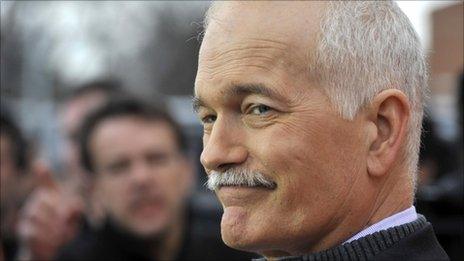
- Published26 August 2016
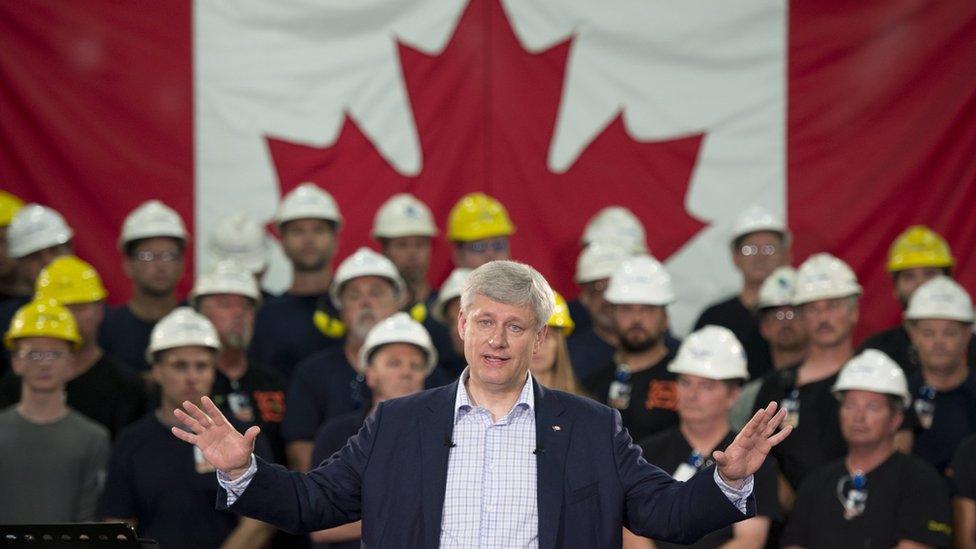
- Published29 April 2011
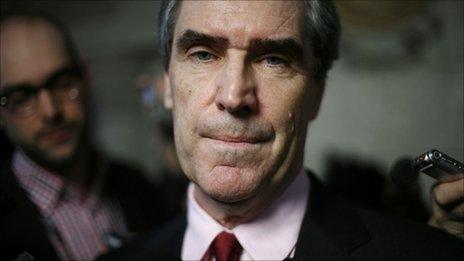
- Published30 April 2011
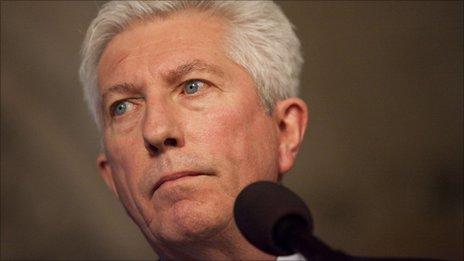
- Published28 April 2011
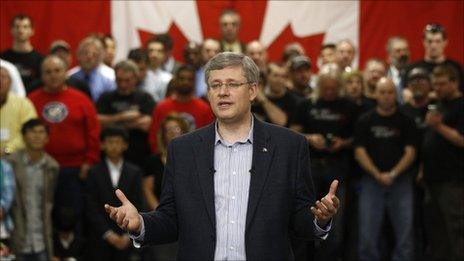
- Published22 April 2011
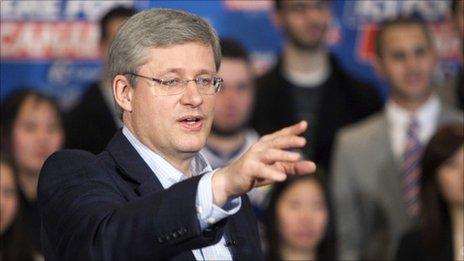
- Published21 April 2011
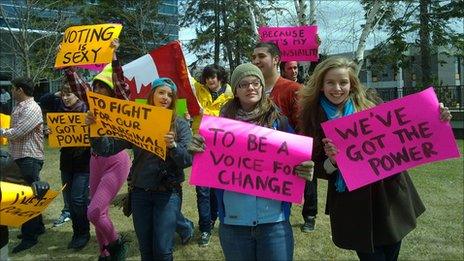
- Published13 April 2011